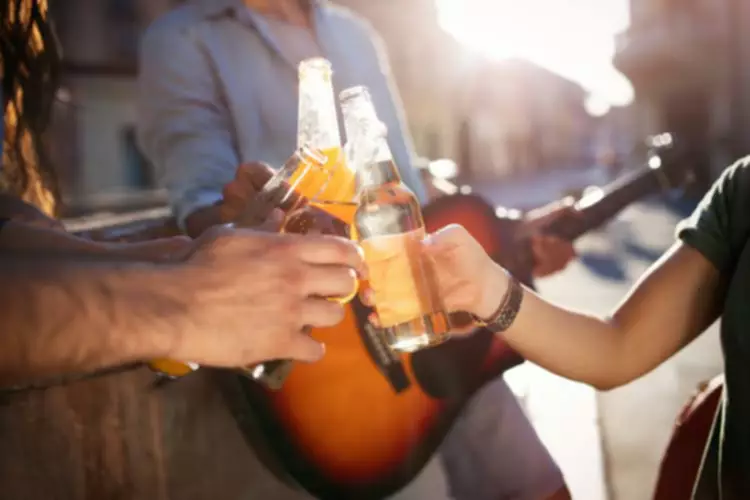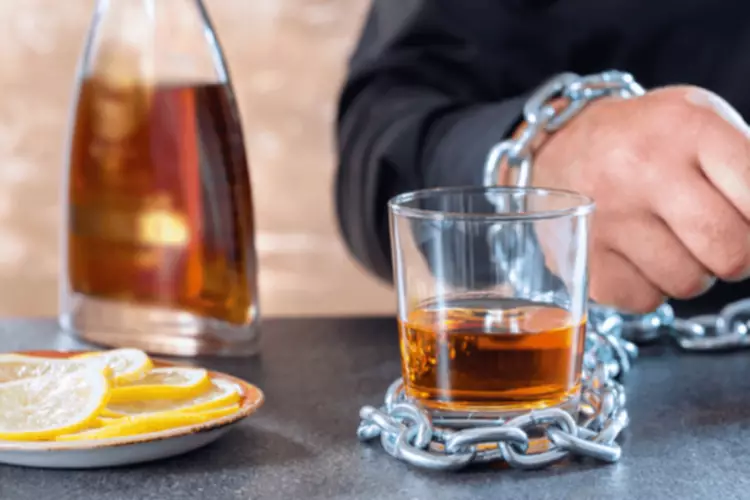Alcohol Dependence: Signs and Symptoms

Not many people can tell alcohol abuse vs. dependence apart. Individuals begin to abuse alcohol and gradually become dependent on it for one reason or another. At first, perhaps, a person drinks from time to time, then more and more often, the volumes of the drink increase.
As a rule, nothing happens suddenly. That is why it is difficult to determine that specific moment when a habit turns into a big problem. Both alcohol abuse and dependence are currently considered alcohol use disorders, but it is difficult to draw a dividing line between the two.
Abuse…
… is an issue if one of the following occurred in the last year.
- Alcohol makes it difficult for you to complete tasks at work, school, or at home.
- Drinking alcohol has put you in a dangerous situation for your health (you have driven a vehicle or swam under the influence of alcohol, entered a danger zone, entered into unprotected intercourse, etc.).
- You were detained by the police or have other legal problems due to alcohol.
- Even though this was accompanied by problems for your family or friends, you have not stopped drinking alcohol.
Thus, alcohol abuse is excessive and difficult to control use of alcohol, which manifests itself in everyday life. Frequent alcohol consumption leads to physical and mental dependence.

Alcohol dependence…
… is an issue if at least three of the following have occurred in the last year.
- To achieve the same feeling of intoxication, you had to drink more and more. You have noticed that in the past, a specific amount of alcohol had a greater effect. In other words, your tolerance for alcohol has increased.
- When you are sober, you feel withdrawal symptoms, or you have to get drunk in the morning because of poor health.
- You are drinking more or longer than you want to.
- You have not been able to cut down on or quit drinking alcohol, even though you wanted and tried.
- Your relationships with others are destroyed, you are less and less engaged in work and hobbies or completely abandoned them.
- You continued to use alcohol although it caused depression, anxiety disorder, or other health problems.
It is clear from this that alcohol dependence includes both mental and physical dimensions. A person gets used to the idea that in certain situations, he or she is no longer able to enjoy life without alcohol. At the physical level, tolerance to alcohol is formed and one experiences withdrawal symptoms.

What causes alcohol dependence?
Alcohol dependence syndrome arises due to social, psychological, and innate biological factors.
Social factors:
- culture of drinking alcohol in society, the attitude of religion to drinking alcohol;
- the attitude of the state towards alcohol consumption, its advertising and propaganda;
- traditions of society (drink on New Year’s, celebrate a birthday);
- the level of education.
The most significant social factor is the attitude of family members to alcohol, family traditions, upbringing. Individual biological factors are determined by hereditary predisposition. Studies indicate that if a father or mother suffered from alcoholism, the likelihood that the child will abuse alcohol in the future increases 7-15 times.
Psychological factors:
- anxiety, self-doubt, and low self-esteem;
- weak social adaptation;
- poor knowledge of your own emotions, inability to work out unpleasant feelings;
- lack of hobbies (a person drinks to cheer himself up and get rid of boredom);
- personality disorder;
- desire to strengthen emotions, to get joy.
The psychological origin of the alcohol dependence syndrome lies in the fact that a person is not satisfied with the present state of his or her life: work, family, or unpleasant memories. Alcohol dependence is a kind of addictive behavior when a person seeks to temporarily escape from reality by changing the mental state.


Take back control of your life and start on the road to recovery now.
Can alcohol dependence be prevented or avoided?
To avoid alcohol abuse, you need to develop willpower and motivation. Here are some tips to reduce alcohol consumption:
- if you are drinking with friends or alone, set yourself a limit on how much you can drink;
- dependence arises not from alcohol, but as a result of dissatisfaction with life: find the reason and analyze it;
- limit communication with heavy drinkers, rest and have fun with those who know how to drink correctly or do not drink at all;
- consult a psychologist, psychiatrist, or other specialists who can help solve your problem;
- find a support group or people who have recovered from alcohol dependence; they can help you deal with the problem and motivate you to quit drinking.
Alcohol dependence cannot be solved alone. As soon as the first signs are found, you should immediately consult a doctor to get free from it and prevent negative consequences.




